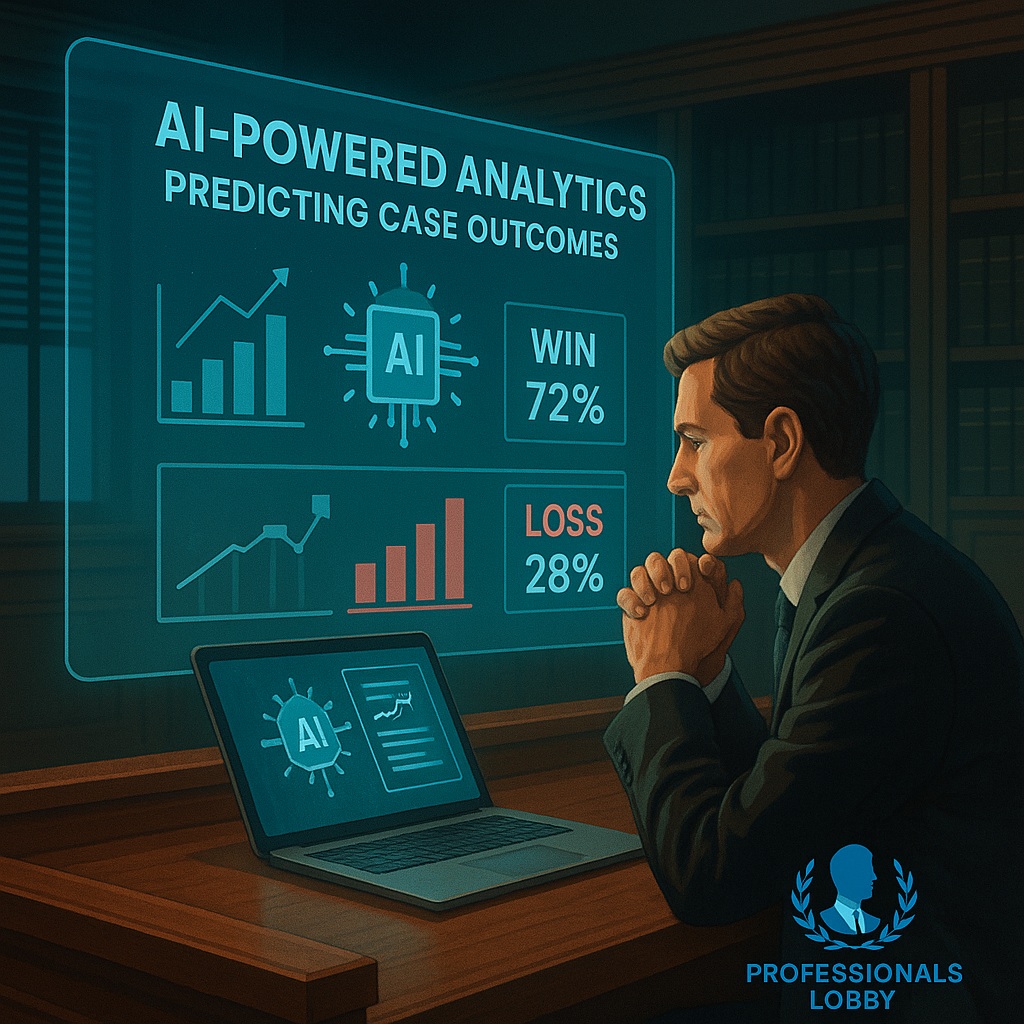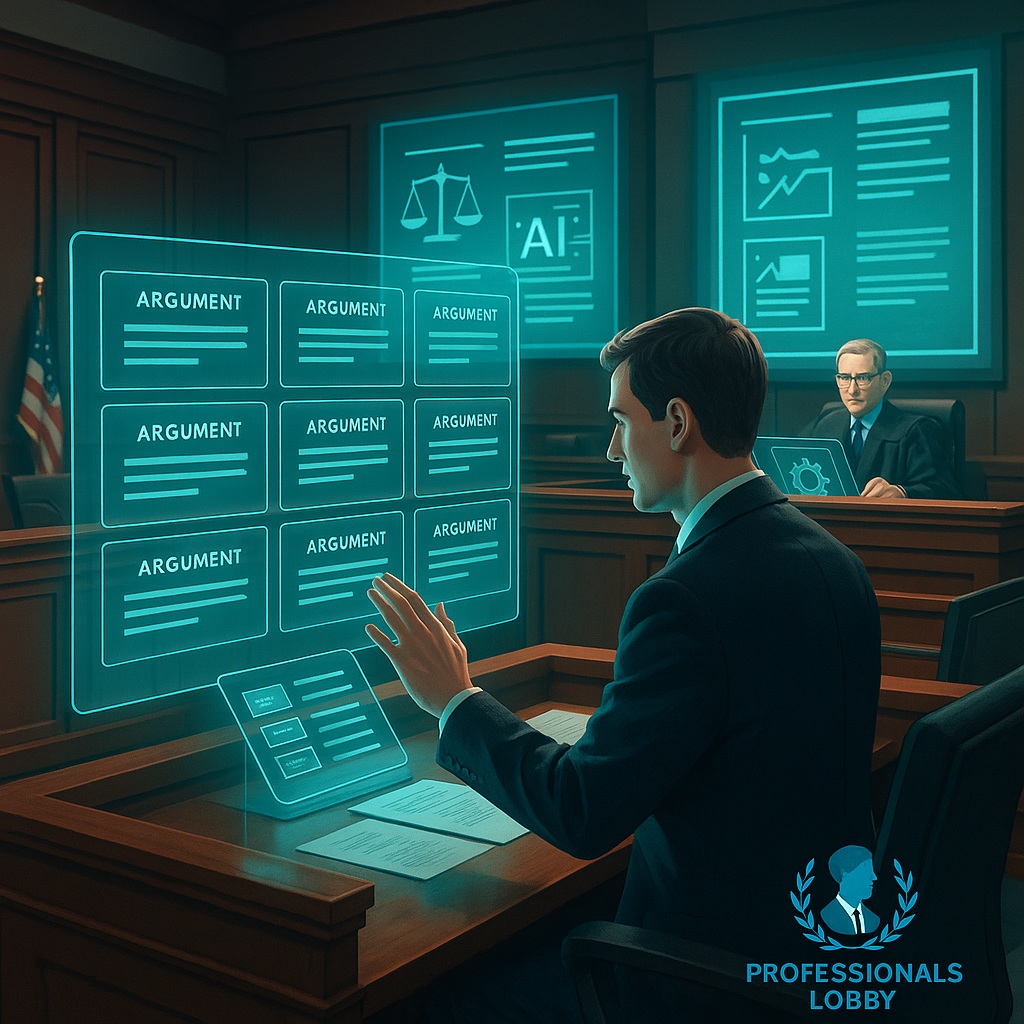In one unforgettable scene from the classic legal series The Paper Chase, a law student was challenged to present a unique legal argument as the 100th speaker. To ensure originality, he prepared 100 different arguments, demonstrating extraordinary dedication. Fast forward to today, with AI tools like DeepSeek, ChatGPT, and Gemini, such intellectual feats can be accomplished faster, more thoroughly, and more accessibly—revolutionizing the legal profession itself.
Artificial Intelligence is no longer just a tech buzzword. It's becoming an essential ally in the legal world—empowering lawyers, assisting judges, and informing everyday citizens. Here's how AI is reshaping the legal landscape:
1. Preparing Arguments at Scale
Lawyers often need to craft compelling, tailored arguments. With AI:
- Tools like ChatGPT and DeepSeek can generate dozens of variations for legal arguments.
- Legal language models can mimic courtroom tone, style, and format.
- AI ensures arguments remain unique, relevant, and legally sound.
This means junior associates and students no longer need to start from scratch—they can iterate, refine, and focus more on strategy than structure.
2. In-depth Legal Research and Case Analysis
Traditionally, legal research consumes hours—often days—of combing through case law, statutes, and journals. AI changes that by:
- Instantly summarizing relevant legal precedents.
- Highlighting key facts, arguments, and rulings from thousands of cases.
- Organizing complex legal documentation into understandable summaries.
AI tools like CaseText or Lexis+ AI already provide tailored case recommendations based on uploaded documents or queries.
3. Validation and Cross-Referencing of Evidence
AI can analyze scanned documents, photos, and video or audio evidence to:
- Detect inconsistencies.
- Cross-reference with public databases or case law.
- Highlight manipulated or falsified content (using deepfake detection tools).
This helps lawyers and judges prevent miscarriages of justice based on flawed or fake evidence.
4. Outcome Prediction and Legal Strategy Planning
AI can analyze case documents from both sides, using machine learning trained on thousands of prior rulings, to:
- Predict which side has a higher likelihood of winning.
- Provide strategic advice based on historical data.
- Highlight weak or strong points in your case, giving an edge in negotiations or trial prep.
Tools like Blue J Legal and Premonition use such predictive analytics for tax, employment, and civil litigation.

AI-powered analytics can predict case outcomes with increasing accuracy
5. Legal Language Interpretation for Any Jurisdiction
Whether you're dealing with U.S. tax law, UAE corporate law, or German constitutional law, AI can:
- Translate legal texts accurately with jurisdictional nuances.
- Explain laws in simple language for clients or citizens.
- Compare laws across regions or countries.
Multilingual and legally trained AI models break barriers between legal systems and non-lawyers.
6. Drafting Legal Documents and Contracts
AI excels at document generation:
- Create NDAs, MOUs, employment contracts, and court filings quickly.
- Customize clauses based on business needs and local law.
- Detect and alert users to risky or unusual contract terms.
Platforms like DoNotPay and LegalZoom already incorporate AI drafting tools, offering speed and cost-efficiency.
7. Supporting Judges in Delivering Fair Judgments
Judges face an immense burden of ensuring fairness, efficiency, and accuracy. AI assists by:
- Recommending relevant precedents based on the case at hand.
- Summarizing both party arguments and historical judgments.
- Pointing out overlooked angles or contradictions in reasoning.
AI becomes an impartial advisor, especially valuable in complex civil, corporate, or constitutional matters.
8. Combatting False Accusations and Misleading Testimonies
AI-powered lie detection, pattern analysis, and cross-examination bots can:
- Flag inconsistencies in testimonies.
- Detect AI-generated or tampered evidence.
- Spot perjury or manipulation using behavioral and textual analysis.
Such tools protect the integrity of the justice system.
9. Enabling Legal Access for the Common Man
Perhaps the greatest promise of AI lies in democratizing legal access:
- Citizens can ask AI questions like "What are my tenant rights in Dubai?" or "Can I get a refund for a cancelled flight?"
- AI offers 24/7 free legal assistance in natural language.
- Chatbots like DoNotPay fight parking tickets, cancel subscriptions, and even sue spam callers.
This lowers the dependency on costly legal consultations for minor or repetitive issues.
10. Preparing Counter-Arguments with Precision
With access to an opponent's brief, AI can:
- Detect the logical structure of their argument.
- Find fallacies, outdated laws, or contradictory case citations.
- Draft customized rebuttals that target the core of their claims.
This gives lawyers a strategic advantage in debates, arbitration, and trials.
11. Keeping Up with Legal Changes and Compliance
AI can monitor:
- Legislative changes in real time.
- Changes in tax, labor, or trade laws specific to industries.
- Regulatory updates based on geography.
It ensures companies and legal teams stay ahead of compliance risks and policy shifts.
Conclusion: The Future of AI in Justice
AI tools like ChatGPT are not replacing lawyers or judges—they're amplifying them. They bring speed, clarity, precision, and reach that the legal profession has never seen before.
In a world of rising complexity and legal ambiguity, AI acts as a compass—guiding legal professionals and the public toward smarter decisions and fairer outcomes. Whether you're a law student preparing your 100th argument, a judge analyzing conflicting evidence, or a citizen trying to understand your rights, AI is your most powerful assistant.
Ready to Transform Your Legal Practice with AI?
Professionals Lobby connects you with legal tech experts and AI consultants who can help implement these solutions in your practice or organization.
Schedule AI Legal Consultation